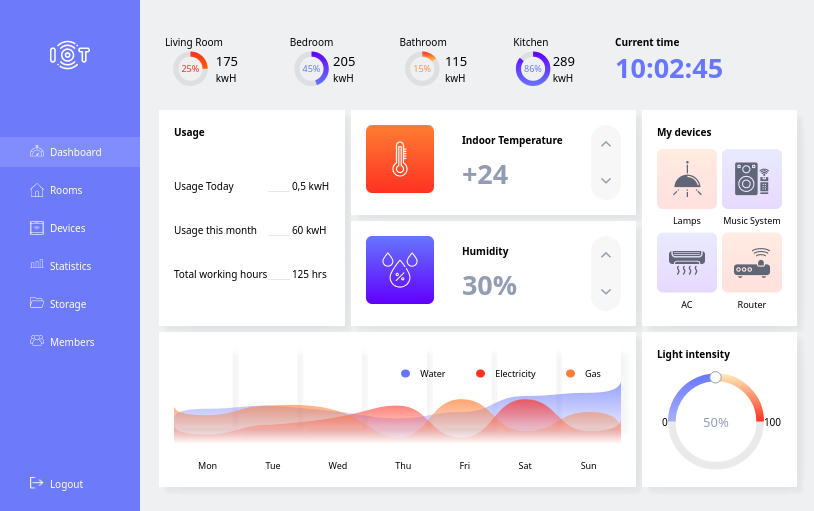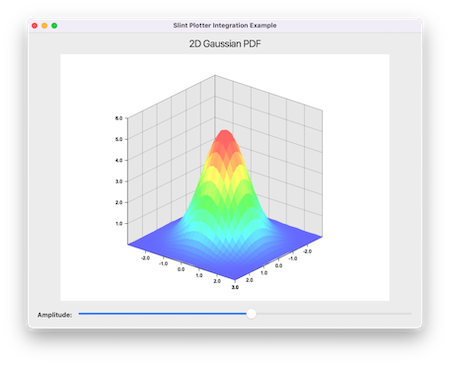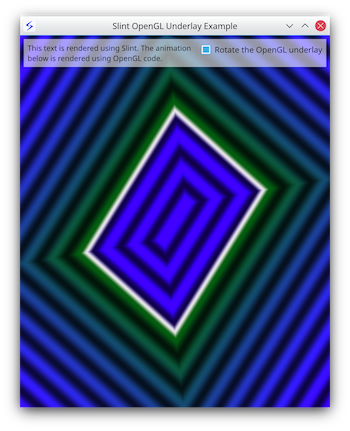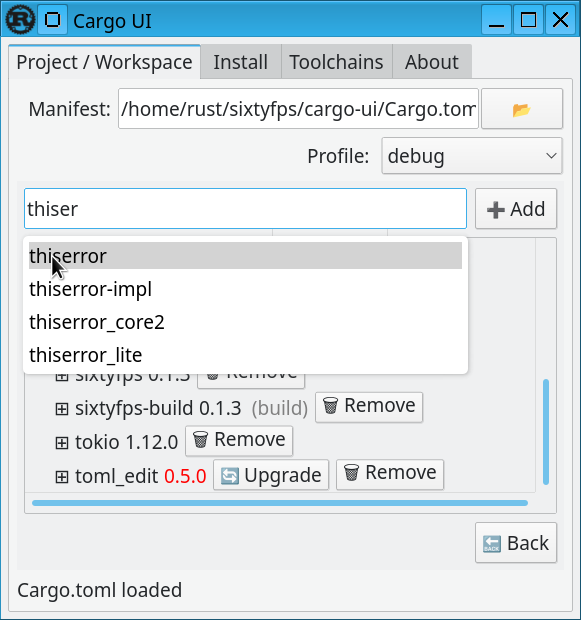These examples demonstrate the main features of Slint and how to use them in different language environments.
| Thumbnail | Description | Example |
|---|---|---|
Widget Gallery  |
A simple application showing the different widgets. Project... |
Wasm Demo |
Energy Meter |
A fictional user interface of a device that monitors energy consumption in a building. Project... |
Wasm Demo |
Todo app |
A simple todo application. Project... A simple todo application based on the Model View Controller pattern. Project... |
Wasm Demo Wasm MVC Demo |
Carousel |
A custom carousel widget that can be controlled by touch, mouse and keyboard. Project... |
Wasm Demo |
Slide Puzzle |
Puzzle game based on a Flutter example. Project... |
Wasm Demo |
Memory Game |
A basic memory game used as an example the tutorial. Project... |
Wasm Demo |
IOT Dashboard |
AA clone of one demo from the QSkinny framework. Also shows how to dynamically load widgets from C++. Project... |
|
Image Filter |
A Rust-only example that shows how to use the Rust image crate to do image manipulationsand feed the result into Slint. Project... |
Wasm Demo |
Plotter |
A Rust-only example that shows how to use the Rust plotters crate to do plot a graph and integrate the result into Slint. Project... |
Wasm Demo |
Using Bash |
Some examples of how to use the slint-viewer to add a GUI to shell scripts. Project... |
|
OpenGL Underlay |
A Rust and C++ example that shows how render Slint on top of graphical effect rendered using custom OpenGL code. Project... |
Wasm Demo |
OpenGL |
A Rust and C++ example that shows how render a scene with custom OpenGL code into a texture and render that texture within a Slint scene. Project... |
|
FFmpeg  |
A Rust example that shows how render video frames with FFmpeg within a Slint scene. Project... |
|
Maps |
A rust example that load image tiles asynchronously from OpenStreetMap server and allow panning and zooming. Project... |
|
Virtual Keyboard |
A Rust and C++ example that shows how to implement a custom virtual keyboard in Slint. Project... |
|
7GUIs |
Our implementations of the "7GUIs" Tasks. Project... |
| Thumbnail | Description |
|---|---|
Cargo UI |
A rust application that makes use of threads in the background. Project... |
Simply load the .slint file with the viewer application
cargo run --release --bin slint-viewer -- examples/gallery/gallery.slintYou can run the examples either by going into folder or into the rust sub-folder and use cargo run, for example:
cd examples/gallery
cargo run --releaseor you can run them from anywhere in the Cargo workspace by name:
cargo run --release --bin galleryIn order to make the wasm build of the example, you first need to edit the Cargo.toml
files to uncomment the line starting with #wasm# (or use the sed line bellow)
You can then use wasm-pack (which you may need to obtain with cargo install wasm-pack).
This will generate the wasm in the ./pkg directory, which the index.html file will open.
Since wasm files cannot be served from file:// URL, you need to open a wab server to serve
the content
cd examples/imagefilter/rust
sed -i "s/^#wasm# //" Cargo.toml
wasm-pack build --release --target web
python3 -m http.server- When compiling Slint from sources: If you follow the C++ build instructions, this will build the C++ examples as well by default
- From installed binary packages: Simply run cmake in one of the example directory containing a CMakeLists.txt
mkdir build && cd build
cmake -GNinja -DCMAKE_PREFIX_PATH="<path to installed>" ..
cmake --build .You can run the examples by going into the node sub-folder and use pnpm, for example:
cd examples/todo/node
pnpm install
pnpm start